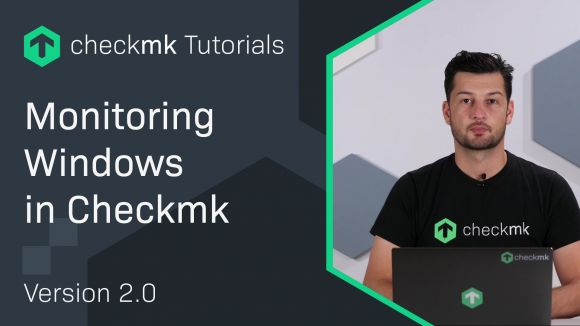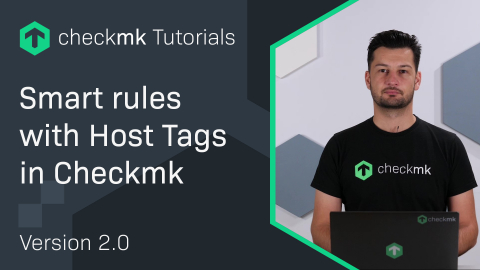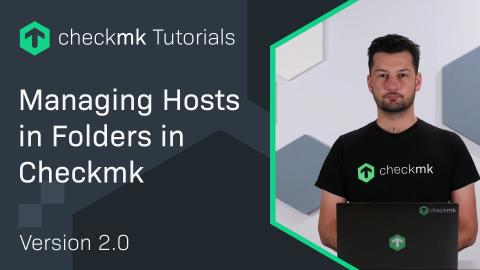Ep. 10: Using the Quicksearch function in Checkmk
Note: All the videos on our website offered in the German language have English subtitles and transcripts, as given below.
| [0:00:01] | Today we will be looking at Quicksearch. Quicksearch can do much more than I showed at the beginning of this series. |
| [0:00:19] | With Quicksearch you can very quickly find specified hosts and services in the monitoring, and there are a couple of tricks that are very, very cool, with which you can decide exactly what you want to see, and now here I'll just show you an example. |
| [0:00:33] | What you might already know is that in 'QUICKSEARCH' you can simply type in any hostname – for example, 'db', and then I will see my four servers whose names start with 'db', or I can simply press Enter here, then I don't just get one server, rather I actually see a list of all hits at once. |
| [0:00:51] | If I had selected only one server here, then I would see only that one – and only its services. |
| [0:00:57] | That is nothing new really, but what you can do now is... There are certain abbreviations. |
| [0:01:04] | I can say for example, I am looking on the hosts – 'h:db' I'm now entering – on all hosts that start with 'db', I can look for services starting with CPU ('s:cpu'). |
| [0:01:18] | Either I can now again select from the list if I'm looking for a specific one, or I simply press Enter and I get exactly this search result. |
| [0:01:27] | By the way, if you click up here on the magnifying glass , you can see this search result again. Here the host name starts with 'db', and the service with 'CPU'. |
| [0:01:41] | You can also change, refine and extend this again here. |
| [0:01:47] | There are more such abbreviations – for example, I can search for specific IP addresses. |
| [0:01:49] | I can search for all hosts whose IP address starts with '10' ('ad:10'). |
| [0:02:00] | That is also a possibility. |
| [0:02:02] | In the last video we created host and service groups. |
| [0:02:06] | I can enter that I'm looking for a specific host group – say 'hg:test' – and if I wish I can also look in the host group and additionally enter that I want to see the services that start with CPU ('s:cpu'), - I can choose one, or I can simply select them all. |
| [0:02:24] | Accordingly, there is also 'sg' for service group – we had also created a group there – and here I can simply call this up very quickly. |
| [0:02:30] | And what also works is the so-called alias. |
| [0:02:35] | You can assign an alias to any host. Here of course the aliases are now the same as the host names. |
| [0:02:41] | But if you go into the host administration – we can go to any host, for example, here to 'dbserver01' – in the 'BASIC SETTINGS', under alias I can assign an alternative name. |
| [0:02:59] | For example 'Datebase Warehouse North', let's say as an example, really an additional name, and if I activate this here, then in 'QUICKSEARCH' I can also target a search specifically for this alias. |
| [0:03:23] | So, with this you have a number of possibilities for accessing the data very quickly – just give it a try. |
| [0:03:29] | In the manual you will find the complete table of all available abbreviations, or here also as shown in this video, and, yes I hope this will make your life a little easier. |
| [0:03:41] | Thanks for watching, and see you next time. |
Interested in learning more? Register for a dedicated Synthetic Monitoring training course.








